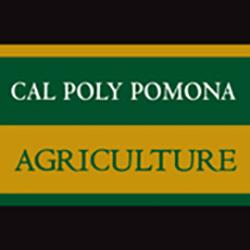Students Present Asian Citrus Psyllid Research Findings
Slideshow
This slideshow contains 2 slides that will change every 8 seconds. The first button is to play and pause the slideshow, followed by buttons to go to the previous slide, next slide, or choose individual slides.

From studying insect coloration and feeding behavior, Huntley College of Agriculture students are performing research into ways to combat the Asian Citrus Psyllid.
Twenty-one students made presentations on June 1 at the Fourth Annual Asian Citrus Psyllid Student Research Symposium. The event was held at AGRIscapes.
The psyllid is an insect that carries a disease, Huanglongbing, which is fatal to citrus. The disease has devastated the Florida citrus industry and threatens California.
California scientists and growers are using a wasp – the Tamarixia radiata – to stop the spread of the disease. The wasp lays its eggs on the psyllid, which dies when the eggs hatch.
Cal Poly Pomona faculty and students are working with California Department of Food & Agriculture scientists to identify ways to mass produce both the wasps and the psyllids, which the wasps needs to feed upon.
To that end, students’ research projects this year included exploring the effects of a nutrient-rich diet on the psyllids’ fecundity and the effects of infrasonic frequencies and salycilic acid on their feeding behavior.
The students are also continuing to gauge and raise public awareness of the Asian citrus psyllid and Huanglongbing. One project explored raising awareness among local elementary school students.
Last year, the Huntley College of Agriculture opened a new 5,040-square-foot greenhouse on campus to support research and insect production. It was made possible through a $400,000 grant from California citrus growers.
